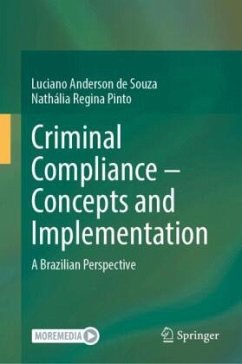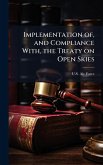This book delves into the critical theme of compliance, which has become paramount for corporations and legal professionals, particularly in the realm of Economic Criminal Law. Following high-profile corruption scandals, such as "Operation Car Wash"-a landmark case in Brazil-corporate behavior has undergone a significant transformation. This transformation is centered on cultivating a new corporate culture, with compliance programs taking the forefront in managing and coordinating internal controls, thereby establishing clear boundaries for corporate responsibility.
It examines the case of Novonor, formerly known as Odebrecht, which was embroiled in one of the largest corporate scandals in Latin America. This scandal extended beyond Brazil to countries like Argentina, Peru, Colombia, Mexico, Venezuela, the Dominican Republic, Panama, Ecuador, and Guatemala. Novonor is now striving to rebuild its legacy, which began in 1944, by adhering to new standards of conduct and corporate governance.
Through the lens of the Odebrecht case and other similar instances, this book underscores the significance of robust compliance programs that exceed the minimum regulatory standards. The impetus for adopting these programs is largely driven by U.S. and Brazilian regulators, aiming to prevent international corruption and serve as a powerful tool for deterring illicit activities, delineating responsibilities, and fostering positive corporate values.
In addition, this book addresses the importance of maintaining the ultima ratio principle of Criminal Law, ensuring that its fundamental liberal principles are upheld. This approach is crucial to avoid an overly expansive application of Criminal Law, which has proven to be both ineffective and selective.
It examines the case of Novonor, formerly known as Odebrecht, which was embroiled in one of the largest corporate scandals in Latin America. This scandal extended beyond Brazil to countries like Argentina, Peru, Colombia, Mexico, Venezuela, the Dominican Republic, Panama, Ecuador, and Guatemala. Novonor is now striving to rebuild its legacy, which began in 1944, by adhering to new standards of conduct and corporate governance.
Through the lens of the Odebrecht case and other similar instances, this book underscores the significance of robust compliance programs that exceed the minimum regulatory standards. The impetus for adopting these programs is largely driven by U.S. and Brazilian regulators, aiming to prevent international corruption and serve as a powerful tool for deterring illicit activities, delineating responsibilities, and fostering positive corporate values.
In addition, this book addresses the importance of maintaining the ultima ratio principle of Criminal Law, ensuring that its fundamental liberal principles are upheld. This approach is crucial to avoid an overly expansive application of Criminal Law, which has proven to be both ineffective and selective.







![Concepts of State, Sovereignty and International Law [1928] Concepts of State, Sovereignty and International Law [1928]](https://bilder.buecher.de/produkte/63/63899/63899740n.jpg)
